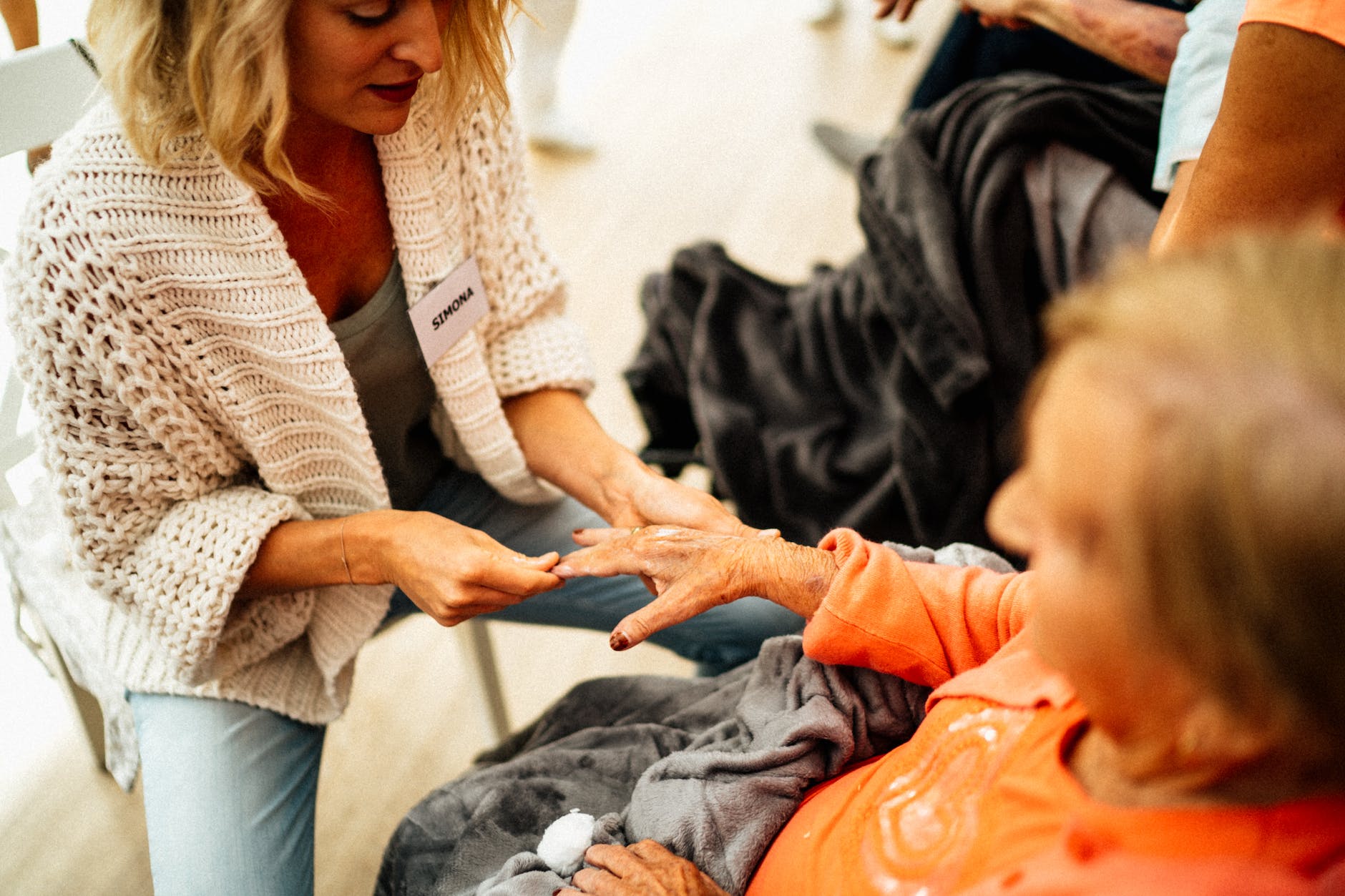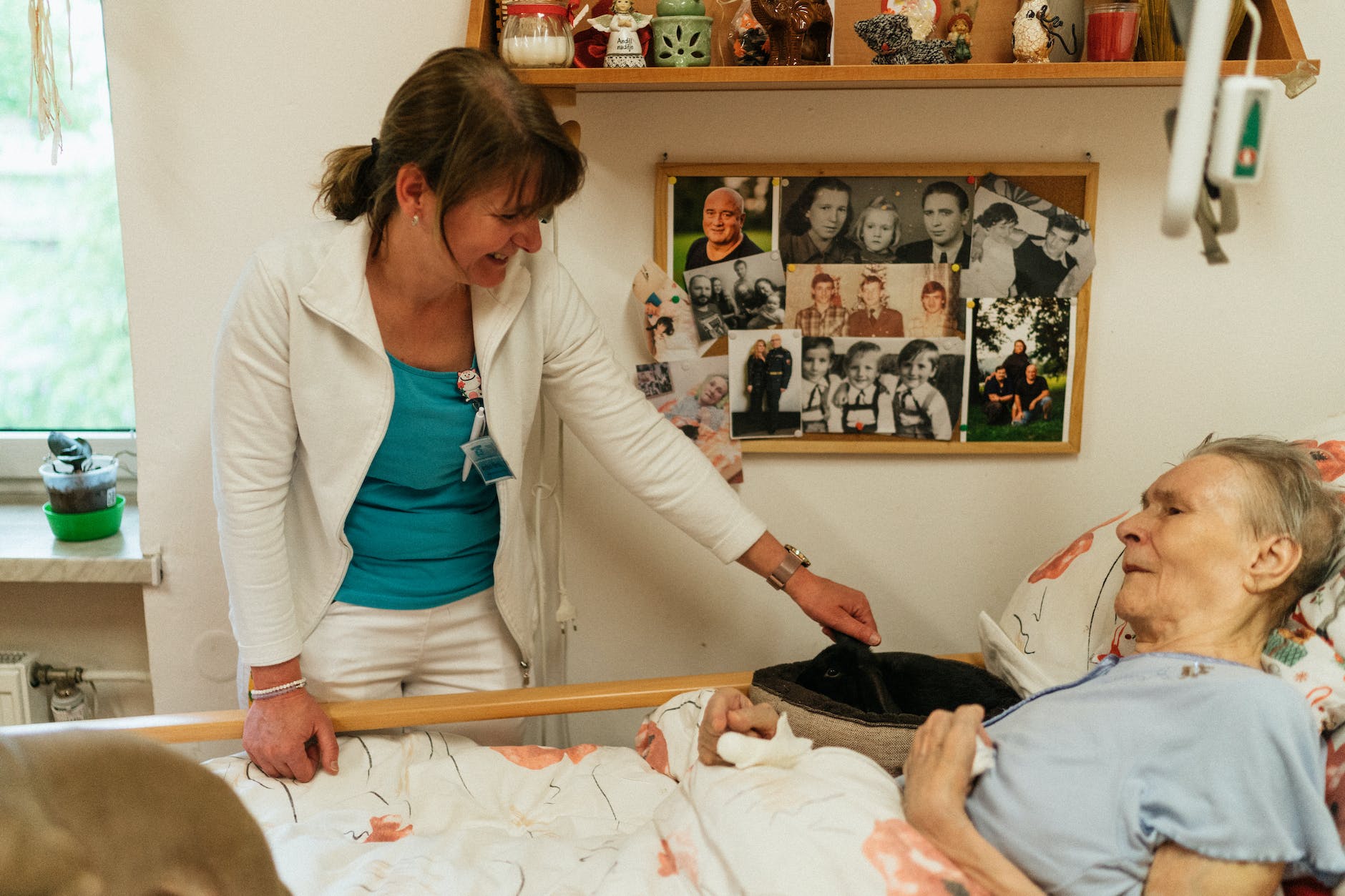
Most people are familiar with doulas as non-medical professionals who help facilitate the birth of babies. Death doulas, around since the beginning of time in one capacity or another, are a rather new idea. In short, death doulas, or end-of-life doulas, provide non-medical support for dying people. Hospice is more well-known as a type of care that focuses on comfort for the terminally ill. Both death doulas and hospice support the dying physically, emotionally, and/or spiritually.
Death Doulas and Hospice
A partnership between death doulas and hospice makes sense.
In many communities, death doulas coordinate their efforts with hospice organizations and other community providers to offer more services for the dying. Around the country, more hospices are also hiring doulas for just this reason.
This could help to bring more death doulas to more people in need.
Doulas have a variety of specialties they bring to their death work. Some are Reiki practitioners. Others have a nursing background.
Some, like me, have a varied career path that involves writing, advocacy, educating, and hospice volunteering. Services can range from mediating tender conversations and helping with advance care directives to advocating for the client in their final days.
More people are becoming aware of a variety of options for end-of-life care. Death doulas and hospice help each other in that respect. The more people hear about one, the more they understand the other. Hospice and doulas can also come together to offer support. Both put control back in the hands of someone who feels like they just lost control of everything.
End-of-life professionals, whether independent doulas or those working for hospice, help the dying explore how they want to live and die.
The Ultimate Care Team
Emotions run high at the end of life. A caring team that includes doulas and hospice workers can help dying people better assess their lives. If a client chooses both hospice and a doula, that’s often the best-case scenario. As long as the care team is working together.
Solid communication is vital so that clients get consistent answers.
Many hospices around the country send volunteers and employees to doula training to expand their offerings. This is because more and more hospice patients request services that hospice organizations don’t offer.
Rather than turn these clients over to a doula in private practice, administrators see the value in offering doula service in-house. Surely this has to do with funding, but it benefits clients to keep everything consistent.

Should Private Doulas Remain Private?
In some circumstances, it helps doulas to stay private. Other doulas prefer working for a larger organization. Speaking for myself, I enjoy being self-employed and choosing where and how I want to serve.
But this question isn’t always so easily answered. In some areas, there is no option. Doulas are working by or for themselves. Hospice providers either don’t know about death doulas or aren’t interested in expanding.
But for doulas contemplating joining hospice or remaining private, there are pros and cons to either choice.
On the one hand, joining a hospice provider can bring with it a certain amount of security. Hospice offers vacation days, sick leave, insurance, and a retirement plan. Hospice doulas also feel the camaraderie. Teamwork brings with it a sense of belonging. Everyone cooperates and supports each other through what can sometimes be challenging work.
When death doulas work for a provider full-time, that provider pays for extensive training that comes with the position and doulas aren’t personally liable.
Another benefit to working with hospice is a steady paycheck. When working privately, one never knows when the next client will call. It takes a few years to build up a solid reputation and steady stream of clients.
In the meantime, many doulas work other jobs and don’t have the luxury of time. So working for a hospice has a financial incentive as well.
Benefits for Hospice, Too
Death doulas working for hospice also bring benefits to the hospice provider.
Doulas spend more time with a dying person than either a nurse or a volunteer. This helps the client and loved ones feel more supported. It’s also one more person, one more set of eyes, trained to spot medical issues that might otherwise be missed.
The care team is more complete with a doula on board.
Doulas also advocate for hospice and can encourage a client to enroll earlier than they otherwise would. The family and client feel less anxiety with an end-of-life doula and that translates into a calmer patient for hospice.
The Joys of a Private Practice
Like I said, I am staying private. I feel immense joy working for myself. While I value the hospice providers in my area and am eternally grateful for every referral they send my way, the benefits of running Anitya Doula Services far outweigh the negatives.
For example, as a private death doula, I can:
- Offer superior service because I’m relying on myself and no one else.
- Take on as many or as few clients as I wish.
- Continue as an activist for other causes with complete freedom.
- Set my own schedule.
- Operate with a sliding scale to serve those in need, no matter their ability to pay.
- Grow older and, especially as a woman, never worry about getting fired for it.
Yes, it means I have to pay my own liability insurance, network with others so that I receive more referrals, and work sometimes as a freelance writer when my client load is low.
Hospice is covered by Medicare and most insurance providers. Death doulas are not. Therefore, my clients pay me out of pocket. Even though I use a sliding scale, death doulas, for many, are a luxury.
I also recognize my privilege thanks to a supportive partner who has quality health insurance through his employer.

In the End
Whether they do this as community partners or as employees/employers, death doulas, and hospice organizations have the same mission – to provide quality care for those at the end of their lives. Working together in any capacity benefits everyone.
For a private death doula in Chicago, contact me today.


2 thoughts on “Death Doulas and Hospice: Do They Go Together?”